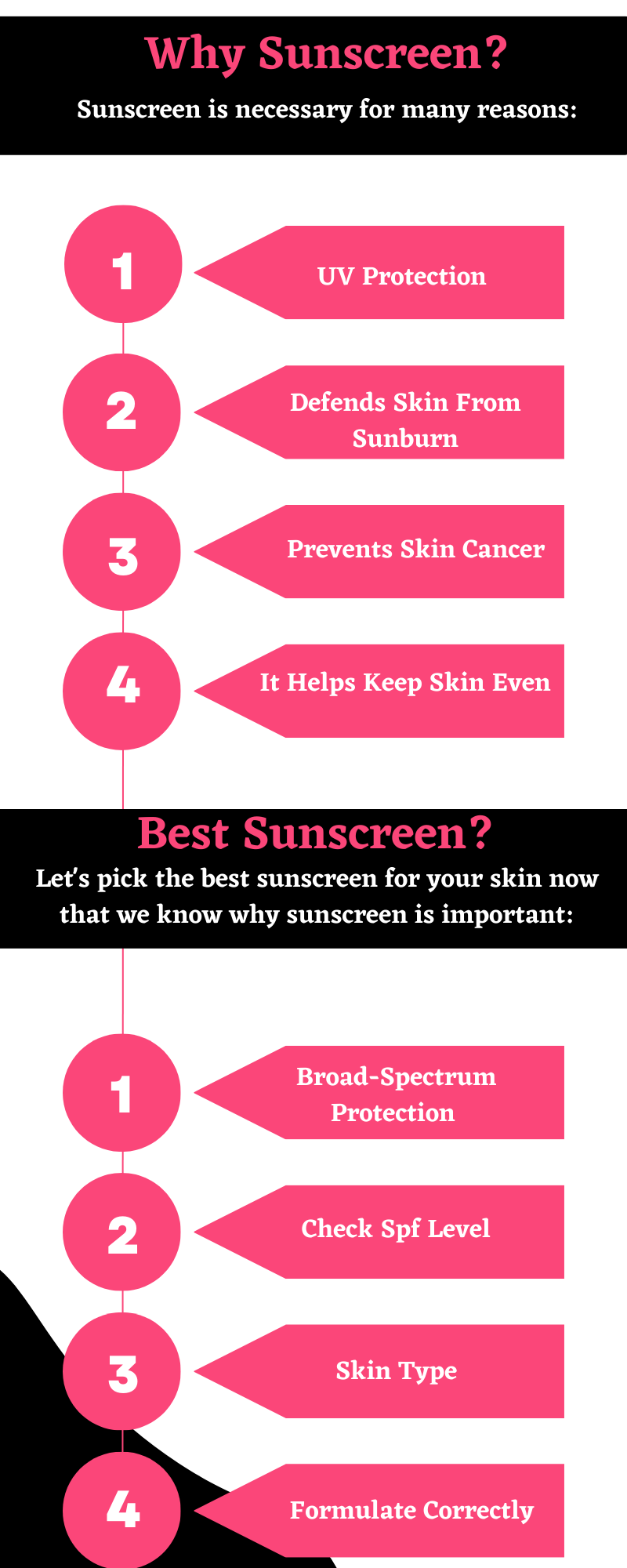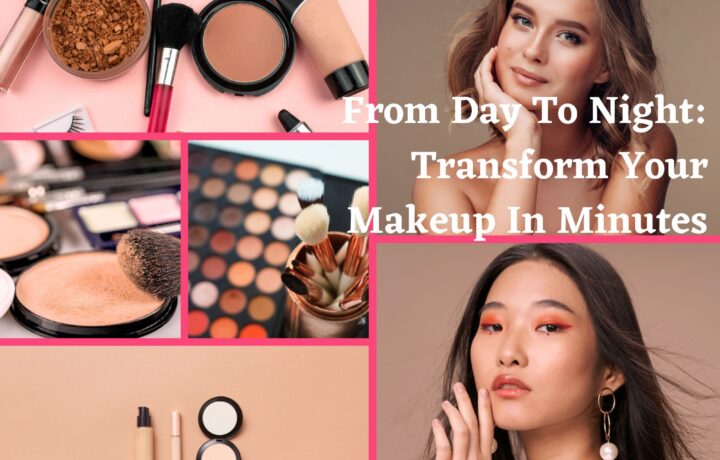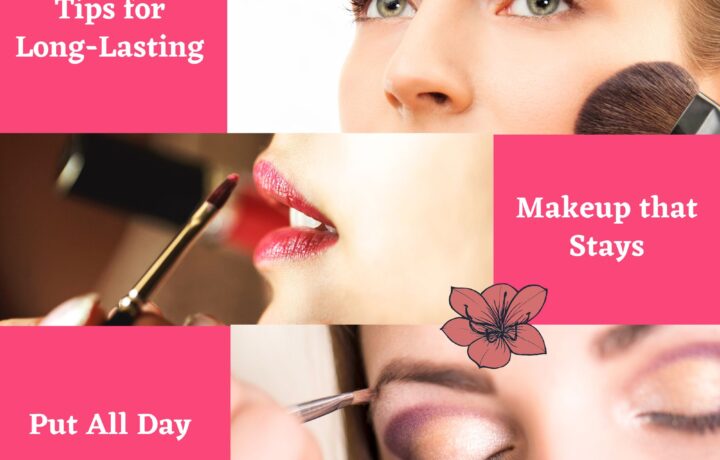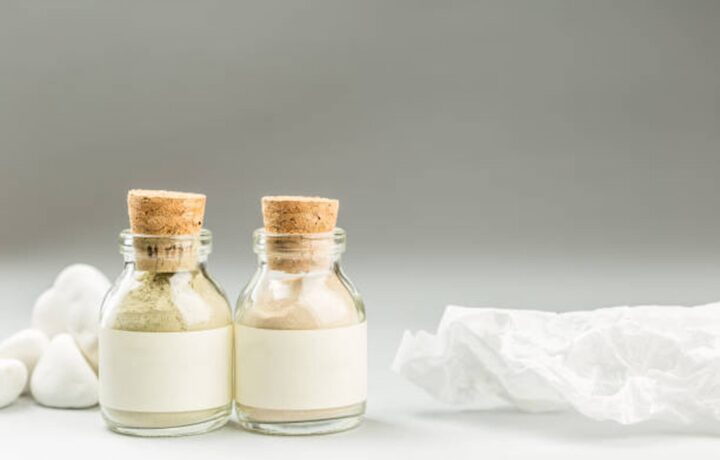During the warmer months, enjoy the sun and activities outside. Before you leave, remember to apply sunscreen. Applying sunscreen to your skin shields it from harmful UV rays. This article offers advice on selecting the best sunscreen and explaining why using sunscreen is essential for maintaining healthy skin.

Why Sunscreen?
Sunscreen is necessary for many reasons:
UV Protection
UVA and UVB sunrays can damage your skin. UVA rays prematurely age and wrinkle skin, whereas UVB rays burn the top layer. UVA and UVB rays raise skin cancer risk. Sunscreen blocks dangerous rays by absorbing, reflecting, or scattering them.
Defends Skin From Sunburn
Sunburn causes discomfort and skin damage. High-SPF sunscreen blocks most UVB rays to avoid sunburn. Sunscreen prevents sunburn, premature ageing, dark spots, and other skin concerns.
Prevents Skin Cancer
UV rays increase the risk of skin cancer. A broad-spectrum sunscreen helps reduce your risk of skin cancer, including melanoma, the most deadly type.
It Helps Keep Skin Even
Sunscreen prevents sun-induced dark patches and hyperpigmentation, which helps even skin tone. UV rays can cause uneven skin tone by causing melanin formation. Wearing sunscreen consistently prevents uneven skin tone and maintains a healthy complexion.
Best Sunscreen?
Let’s pick the best sunscreen for your skin now that we know why sunscreen is important:
Broad-Spectrum Protection
Choose a sunscreen that provides protection against both UVA and UVB rays. The phrase “broad-spectrum” should be looked for on the product label if you want total UV protection.
Check Spf Level
SPF measures UVB protection. Sunscreen with an SPF of 30 or higher is advised. SPF doesn’t always guarantee additional protection. SPF 30 protects 97% of UVB radiation, and SPF 50 98%. Use sunscreen with SPF 30 or higher and reapply every two hours or after swimming or sweating.
Skin Type
Make sure that the sunscreen you use is appropriate for your skin. Sunscreens that are non-comedogenic and oil-free are ideal for oily or acne-prone skin. If you have dry or sensitive skin, look for a moisturizing sunscreen that contains chamomile or aloe vera.
Formulate Correctly
Sunscreens can come in various forms, including lotions, creams, gels, sprays, and sticks. Formulate it in the correct way.
In conclusion, the best sunscreen offers your skin protection over an extended period of time. Always use sunscreen, especially when you’re going to be outside. Check the ingredients and ensure they are compatible with your skin type before buying sunscreen. Check the SPF and reapply it as needed.




